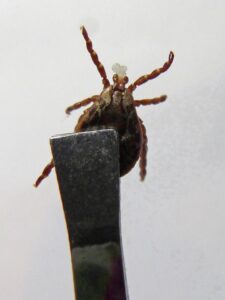Reptiles are ectotherms, or cold-blooded animals, which means they rely on their environment to regulate body temperature. Additionally, each reptile species has evolved to thrive in specific habitats, with distinct requirements for diet, lighting, and humidity. The unique needs of reptiles extend beyond their physical environment. These creatures often lead solitary lives in the wild, and their social needs differ greatly from those of more conventional pets. Understanding these needs is key to ensuring your reptile thrives in your care.
Essential Care Tips For Reptiles
Caring for reptiles involves more than just providing the right habitat and diet. Regular care tasks, like cleaning the enclosure, monitoring health, and providing enrichment activities, are all parts of a comprehensive care routine.
Cleaning the enclosure regularly is crucial to prevent the buildup of waste and bacteria. This includes removing uneaten food, cleaning water dishes, and spot-cleaning the substrate. A full substrate change should also be done periodically, depending on the species and substrate type.
Monitoring your reptile’s health involves regular observations for signs of illness or stress. Changes in behavior, appetite, or appearance can all be signs of health issues. If you notice any concerning changes, consult a veterinarian who specializes in reptiles.
Setting Up A Suitable Habitat For Your Reptile
The habitat you create for your reptile should mimic its natural environment as closely as possible. This includes not only the physical aspects, such as temperature, humidity, and lighting, but also the behavioral opportunities the habitat provides.
For instance, arboreal species like chameleons and tree boas need vertical space and climbing structures, while terrestrial species like tortoises require ample floor space. Aquatic and semi-aquatic reptiles, such as turtles and monitor lizards, need access to water for swimming and soaking.
Substrate, or bedding, is another important consideration. It should be safe to ingest, as many reptiles may accidentally swallow it while feeding. It should also support the required humidity level and provide opportunities for burrowing or hiding, if appropriate for the species.
The Importance Of Proper Nutrition
Proper nutrition is one of the cornerstones of reptile care. A well-balanced and species-appropriate diet can help prevent numerous health issues and contribute to a long, healthy life.
For reptiles, a balanced diet often includes a variety of foods, depending on the species. This could include insects, rodents, fruits, vegetables, or commercial reptile foods. Some reptiles also require dietary supplements to ensure they’re getting the necessary vitamins and minerals.
However, it’s not just about what you feed your reptile, but also how you feed them. Many reptiles are active hunters and benefit from the mental stimulation of hunting their food. For these species, simply placing food in their enclosure may not be sufficient. Instead, consider using feeding methods that encourage natural hunting behaviors.
The Role Of Regular Veterinary Check-Ups In Reptile Care
Just as dogs and cats benefit from regular veterinary check-ups, so do reptiles. Regular check-ups can help catch health issues early, before they become serious. They also provide an opportunity for you to ask questions and gain expert advice on your reptile’s care.
A reptile-savvy veterinarian will perform a thorough physical exam, looking for signs of illness or stress. They may also perform diagnostic tests, like fecal exams or blood tests, to check for parasites or other health issues.
Additionally, it’s important to seek veterinary care anytime you notice changes in your reptile’s behavior, appetite, or appearance. Early intervention can often make the difference between a minor issue and a serious health problem.
Ensuring A Healthy And Happy Life For Your Reptile
Caring for reptiles is a unique experience, filled with rewards and challenges. By understanding their unique needs, setting up a suitable habitat, providing proper nutrition, and ensuring regular veterinary check-ups, you can help ensure a healthy and happy life for your reptile.
To learn more about essential care tips for reptiles, visit Country Veterinary Clinic in our Live Oak, California, office. Call (530) 491-4500 to schedule an appointment today.



